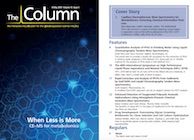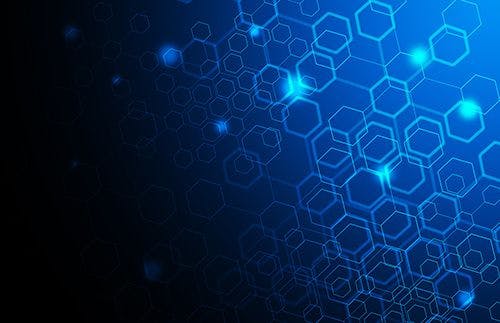The 48th International Symposium on High Performance Liquid Phase Separations and Related Techniques (HPLC 2019)
The 48th International Symposium on High Performance Liquid Phase Separations and Related Techniques (HPLC 2019) will be held 16–20 June 2019 at the Milano-Bicocca University, in Milan, Italy. This is the first time that this symposium will be held in Italy.
Boris Stroujko/stock.adobe.com

The 48th International Symposium on High Performance Liquid Phase Separations and Related Techniques (HPLC 2019) will be held 16–20 June 2019 at the Milano-Bicocca University, in Milan, Italy. This is the first time that this symposium will be held in Italy.
The HPLC symposium series is the largest, most recognized international forum on high performance liquid chromatography (HPLC) and related techniques. It is the ideal location for industrial and academic researchers to exchange information with other colleagues from all over the world. Both fundamental and practical aspects of separation science will be covered during the conference, with the main focus being on new, highly relevant trends emerging in this field, cuttingâedge applications, and innovation in the technology.
Among the many topics that will be covered at HPLC 2019, particular emphasis will be given to hyphenated techniques, in particular liquid chromatography coupled to mass spectrometry (LC–MS), design and characterization of stationary phases, micro- and nano-fluidics, and supercritical fluid chromatography (SFC) and capillary electrophoresis (CE) and their applications in proteomics, metabolomics, food analysis, and characterization of biopharmaceuticals and biosimilars. HPLC 2019 will also feature some unique highlights, such as a session entirely dedicated to HPLC for process analytical technology (PAT) and quality assessment in preparative chromatography, and a session focusing on highâperformance thin-layer chromatography (HPTLC). A complete list of topics can be found on the HPLC website.
Thanks to its multidisciplinary character, the symposium represents an important source for analytical chemists, biochemists, and engineers seeking practical solutions to their problems. Researchers will be presenting their work as lectures in topical scientific sessions or in exciting poster sessions. We strongly encourage the active participation of younger scientists in the symposium. A great amount of effort has been made
to guarantee low student fees, including some special packages designed to give students the opportunity to attend short courses taught by highly reputed experts. We are offering 14 short courses on different topics, with descriptions found online.
A series of awards will be presented during the conference, including the Csaba Horváth Young Scientist Award, the Best Poster Award, the Uwe Neue Award, and many more. In addition to the traditional awards, HPLC 2019 will feature new exciting ideas to recognize the scientific activity of young colleagues, which will be announced soon on the website and on social media.
A rich scientific and social programme awaits participants, starting with the opening ceremony in the exclusive location of the “Giuseppe Verdi” Conservatorio di Milano, the largest music academy in Italy and one of the most important worldwide. A unique opening event merging music and science will celebrate the genius of Leonardo da Vinci on the 500th anniversary of his death.
Milan is a cosmopolitan and vibrant centre of Italian culture. The various cultures of northern Europe and Mediterranean countries merge and as such Milan has a lot to offer, including art, museums, history, opera (La Scala), music, fashion, design, and Italian culinary delights.
Milan also offers a wide range of accommodation for all budgets, and with its three international airports it is easily accessible by plane, and also by car or train for those closer by.
The organizers look forward to welcoming participants in Milan in 2019!
E-mail:hplc2019@effetti.it Website:www.hplc2019-milan.org



















Regulatory Deadlines and Supply Chain Challenges Take Center Stage in Nitrosamine Discussion
April 10th 2025During an LCGC International peer exchange, Aloka Srinivasan, Mayank Bhanti, and Amber Burch discussed the regulatory deadlines and supply chain challenges that come with nitrosamine analysis.
Polysorbate Quantification and Degradation Analysis via LC and Charged Aerosol Detection
April 9th 2025Scientists from ThermoFisher Scientific published a review article in the Journal of Chromatography A that provided an overview of HPLC analysis using charged aerosol detection can help with polysorbate quantification.
Regulatory Deadlines and Supply Chain Challenges Take Center Stage in Nitrosamine Discussion
April 10th 2025During an LCGC International peer exchange, Aloka Srinivasan, Mayank Bhanti, and Amber Burch discussed the regulatory deadlines and supply chain challenges that come with nitrosamine analysis.
Polysorbate Quantification and Degradation Analysis via LC and Charged Aerosol Detection
April 9th 2025Scientists from ThermoFisher Scientific published a review article in the Journal of Chromatography A that provided an overview of HPLC analysis using charged aerosol detection can help with polysorbate quantification.
